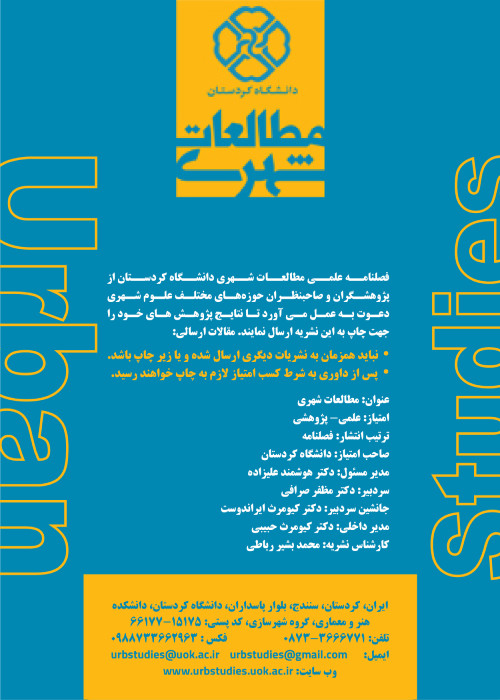The concept of community in Urban Sociology theories and its application in urban planning
With the paradigm change in urban planning in the 1980s, the community has assumed a central role. As a result, the community provides the smallest scale for urban planning in recent theories such as communicative planning theory, collaborative planning theory, multicultural planning, transactive planning, and argumentative planning. Following the changes in urban planning throughout the world ever since 2000, particular attention has been paid to the community in urban planning around Iran, where the concept of community has been controversial. While some Iranian experts support the idea that the notion of neighborhood can be used instead of community, others deploy different conceptions of community in western urban sociology regardless of the social, cultural, economic, and political context of Iranian cities. As a result, neither community-based studies nor urban plans are sufficiently successful. For appropriate application of the notion of community, therefore, it is necessary to find out which conception of community can best be adapted to the Iranian urban planning system. Before this question can be answered, three fundamental inquiries need to be addressed: (1) what are the assumptions behind deployment of community theories in urban planning? (2) what does community mean in the new urban planning paradigm? and (3) what does community mean in the context of Iranian cities? This research was conducted to answer the first question. Thus, the study began with an account of community theories through an examination of accredited documents with an emphasis on urban sociology. The theories reviewed here included Tonnies’s Gemeinschaft and Gessellschaft, Durkheim’s Mechanical and Organic Solidarity, Urban Community of Chicago School, Network Community, Personal Community, Cultural Community, Political Community, Post-modern Community, and Virtual Community. The similarities and differences between the conceptions of community were identified through a variation-finding comparative analysis of the theories. Then, the reasons behind these similarities and differences were derived from both narrative reviews and comparative analyses using qualitative content analysis. According to the comparison results, the similarities and differences were rooted in three major factors: (1) the dominant theoretical bases of each theory, (2) the dominant paradigm and approach of each theory, and (3) the social, economic, cultural, and political changes in the world at the time when the theory had been developed. In other words, each theory gave an account of the community in a specific social, economic, and political context, deploying a particular paradigm and sociological approach; thus, a theory of the community should be used that best fitted both the expert theoretical insight and the context the community is located in. Based on these results, three factors need to be taken into consideration for deployment of the western conceptions of community: (1) the social, cultural, economic, and political context of the target city or neighborhood, (2) the urban planning theory of the research or the plan, and (3) the purposes of the research or plan development. A combination of these three factors could contribute to the process through which the appropriate theory of community could be selected for investigation of the notion in specific contexts.
- حق عضویت دریافتی صرف حمایت از نشریات عضو و نگهداری، تکمیل و توسعه مگیران میشود.
- پرداخت حق اشتراک و دانلود مقالات اجازه بازنشر آن در سایر رسانههای چاپی و دیجیتال را به کاربر نمیدهد.




